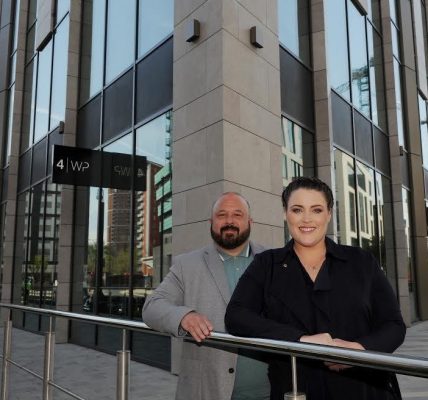Graduates are enduring a torrid time, we must protect our business leaders of the future – Robert Beaumont
Graduates are enduring a torrid time, we must protect our business leaders of the future – Robert Beaumont
These are tremendously testing times for all of us, as the global pandemic plays havoc with every aspect of our lives. Whilst the much-heralded light at the end of the tunnel does appear to be getting brighter, huge challenges lie ahead, especially in the workplace.
One group of workers who will be feeling strain and tension more than most will be graduates, making the transition from university life to the office in the middle of the worst UK health crisis for over 100 years.
The stark contrast between those lazy, hazy university days and those mysterious, sometimes terrifying, first weeks in a new job should never be under-estimated. This transition can be strange at best, hellish at worst.
Now, more than ever, new graduates need sensitive handling by their managers and colleagues as they emerge from the cocooned environment of student life into the harsh and unforgiving glare of the 21 st century workplace. It is important to remember that the majority of mental health problems develop before the age of 24. Concerns about university student mental health have been raised in recent years, with a high prevalence of mental health difficulties among university students.
Mental health charity, The Charlie Waller Trust, of which I am a trustee, has long recognised the struggles that too many university students have with depression, low self-esteem and addiction.
Natalie Miron, a graduate who worked for the trust recently, added: “Having graduated from university during the pandemic and with
my future graduate job being delayed until 2021, I suddenly found myself with a huge amount of time to fill.
“Finding a job as a graduate can be difficult at the best of times, let alone during a pandemic where you’re suddenly being asked for an unrealistic amount of experience and are faced with such a large volume of competition.”
This is especially relevant now. Whilst most people in work are feeling the effects of the pandemic, they can at least draw upon experiences of what it was like before.
New entrants to the workplace have probably experienced greater levels of rejection before they’ve even started and then they are mostly engaging in a digital world which reduces their social interaction and informal learning.
It is very significant that a new report on student accommodation, just released by global property consultancy Knight Frank in conjunction with UCAS, looks closely at student wellbeing and examines the graduation retention statistics of every major university town and city in the UK. There is a strong connection to be made between graduates taking jobs where they have studied and their good mental health.
In Leeds, for example, which has five universities, 35 per cent of students who took part in the Knight Frank/UCAS survey, said that they had found – or were trying to find – a job in the city so they could remain there.
Although the report deals primarily with student accommodation, it does examine student mental health in the midst of this global pandemic, because: “Issues relating to student wellbeing have been driven to the forefront of the way accommodation providers and private landlords engage with students – not least because of the pressures front line staff have faced in supporting students who were shielding or who were isolated from their friends and families.”
Let us not forget that graduates are the business leaders and the entrepreneurs of the future. They must be nurtured and supported, as well as challenged.










